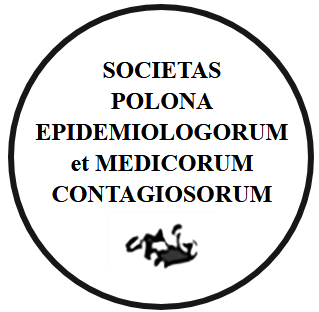Impact of disability in patients with diabetes on the declared quality of life
Publication date: 2024-02-02
Przegl Epidemiol 2023;77(3):327-336
KEYWORDS
ABSTRACT
INTRODUCTION.
Diabetes mellitus is a metabolic disease that affects millions of people worldwide. The complications caused by this disease in many cases lead to a deterioration of the quality of life of patients. An additional factor that negatively affects the quality of life of respondents is disability, which in many cases is diagnosed due to diabetes.
OBJECTIVE.
The aim of the study was to quantify the impact of disability on the declared quality of life in patients with diabetes and to compare the percentage of people with declared disability with the degree of disability among people with type 1 and type 2 diabetes.
MATERIAL AND METHODS.
The study was based on an internet survey posted on social groups related to diabetes on Facebook. The shortened version of the questionnaire measuring quality of life created by the World Health Organization (WHOQOL-Bref) and some self-created questions were used. The survey was completed by 139 respondents. 113 (81.3%) of them were diagnosed with type 1 diabetes mellitus, and 26 (18.7%) with type 2 diabetes mellitus.
RESULTS.
The subjective assessment of the quality of life in the entire group was moderate and totalled 3.5 ± 0.9 (on a scale from 1 to 5). The mean score of the physical domain of the WHOQOL-Bref was 48.9 ± 13.1, of the psychological domain was 55.2 ± 13.5, of the social domain was 60.8 ± 22.1, and of the environmental domain was 54.6 ± 14.5. 56.8% (79) of respondents were diagnosed with disability. 46 (58.2%) of them declared moderate disability. Disability was more frequently diagnosed in patients with type 1 diabetes compared to the group of patients with type 2 diabetes (67.3% vs. 11.5%; p<0.001). Very weak correlation was found between the duration of diabetes and particular domains of the WHOQOL-Bref questionnaire (r ranging from –0.107 to –0.017; p>0.05). The subjective quality of life and the level of satisfaction with health were moderate in the group of patients with type 1 diabetes and declared disability (3.5 ± 0.9), without disability (3.4 ± 0.9) and in the group of patients with type 2 diabetes without disability (3.7 ± 0.8). The mean scores of particular domains of the WHOQOL-Bref questionnaire were very similar in patients with type 1 diabetes, both with a disability certificate (physical domain 49.0 ± 13.6; psychological domain 55.3 ± 13.7; social domain 61.1 ± 22 .8; environmental domain 54.0 ± 14.7) and without (physical domain 48.8 ± 14.0; psychological domain 55.4 ± 13.9; social domain 63.1 ± 23.3; environmental domain 55 .4 ± 14.9), and in people with type 2 diabetes (physical domain 49.8 ± 10.4; psychological domain 56.3 ± 12.1; social domain 59.8 ± 19.1; environmental domain 57, 7 ± 11.4).
CONCLUSIONS.
Disability was diagnosed more often in patients with type 1 than type 2 diabetes. The disability certificate in the group of patients with type 1 diabetes does not affect the quality of life of the respondents compared to people with type 1 and type 2 diabetes without a disability certificate.
Share
RELATED ARTICLE
We process personal data collected when visiting the website. The function of obtaining information about users and their behavior is carried out by voluntarily entered information in forms and saving cookies in end devices. Data, including cookies, are used to provide services, improve the user experience and to analyze the traffic in accordance with the Privacy policy. Data are also collected and processed by Google Analytics tool (more).
You can change cookies settings in your browser. Restricted use of cookies in the browser configuration may affect some functionalities of the website.
You can change cookies settings in your browser. Restricted use of cookies in the browser configuration may affect some functionalities of the website.





